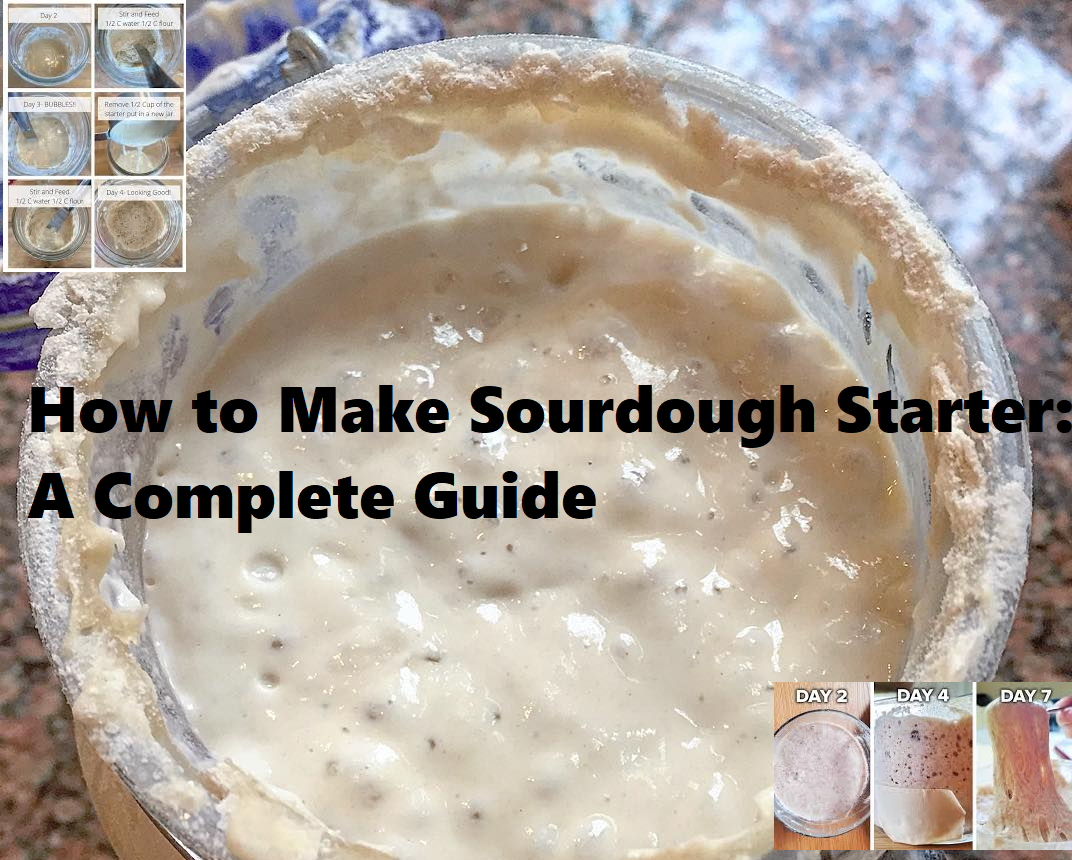If you’ve ever wondered how to make sourdough starter from scratch, you're in the right place. This magical mixture of flour and water is the foundation of the rustic, tangy bread we know as sourdough. But getting a sourdough starter going can feel daunting, especially if you're a beginner. In this article, we'll cover everything you need to know, from the basic steps to expert tips for success.
How Do I Start My Own Sourdough Starter?
Creating a sourdough starter is surprisingly simple. Here’s a step-by-step guide:- Day 1: In a clean jar or bowl, combine 1 cup of flour and ½ cup of water. Stir until smooth. Cover loosely with a lid or cloth and let it sit at room temperature.
- Day 2–5: Each day, discard half of the mixture and “feed” it with 1 cup of flour and ½ cup of water. Stir well, cover loosely, and let it rest.
- Day 6 and beyond: By now, you should see bubbles forming. Continue feeding your starter daily until it smells pleasantly tangy and doubles in size within 4–6 hours after feeding.
What is the Secret to a Good Sourdough Starter?
The secret lies in consistency and patience. Feed your starter at the same time every day, use clean utensils, and keep it in a warm, stable environment. Also, ensure you discard half before feeding to maintain a healthy balance of yeast and bacteria.What is the Best Flour for Sourdough Starter?
The best flour for sourdough starter is whole grain flour like whole wheat or rye. These flours contain more nutrients and wild yeast, which helps kick-start fermentation. However, many bakers switch to all-purpose flour after the starter is active because it produces a milder flavor.What Exactly is a Sourdough Starter?
A sourdough starter is a fermented mixture of flour and water that cultivates wild yeast and bacteria. This living culture acts as a leavening agent, helping your bread rise naturally without commercial yeast.What is the Fastest Way to Activate a Sourdough Starter?
To speed up the activation process, use warm water (around 75-80°F) and keep your starter in a warm spot like an oven with the light on. Whole grain flours, as mentioned earlier, also activate faster than white flour.What is the Best Sourdough Starter?
The best sourdough starter is one that is well-maintained, active, and bubbly. It doesn’t have to come from a fancy bakery or a special strain of yeast; with proper care, your homemade starter can be just as good as any professional one.Can I Use Regular Flour to Feed My Sourdough Starter?
Yes, you can use regular all-purpose flour to feed your sourdough starter. Many bakers switch to all-purpose flour once their starter is active because it creates a milder flavor in the bread.How Long Does Sourdough Starter Take?
It generally takes about 5–7 days to develop a healthy sourdough starter, but some starters may take up to two weeks to become fully active and reliable.Is Sourdough Healthier Than Normal Bread?
Yes, sourdough is often considered healthier than regular bread. The fermentation process breaks down some of the gluten, making it easier to digest, and the lactic acid bacteria help improve gut health.Is Sourdough Starter Healthy?
Sourdough starter is rich in probiotics and beneficial bacteria, which can promote a healthier gut. Additionally, the long fermentation process lowers the glycemic index of sourdough bread compared to regular bread.Is Sourdough Starter Difficult?
It may seem tricky at first, but maintaining a sourdough starter is straightforward once you get the hang of it. Consistency in feeding and discarding part of the mixture is key.What is 100% Sourdough Starter?
A 100% sourdough starter refers to one that is fed with equal weights of flour and water. This is the most common hydration level, giving a mixture that is thick but pourable.Can I Eat Sourdough Every Day?
Yes, many people enjoy sourdough daily. Its lower glycemic index, improved digestibility, and rich flavor make it a great addition to your diet.Is Homemade Sourdough Safe?
Yes, homemade sourdough is safe to eat as long as it is properly fermented and baked. The natural fermentation process prevents the growth of harmful bacteria.Can You Eat Raw Sourdough Starter?
No, you shouldn’t eat raw sourdough starter as it contains raw flour, which can carry harmful bacteria. Always bake your sourdough before consuming. In conclusion, how to make sourdough starter is all about patience, care, and consistency. Once you get your starter going, you'll have an endless supply of delicious, tangy sourdough bread. Happy baking!Read more :
1= https://dapachecker.co.uk/what-are-the-5-rules-of-pickleball-and-how-to-play-pickleball/
2= https://dapachecker.co.uk/how-do-i-meditate-correctly/
3= https://dapachecker.co.uk/how-to-make-sourdough-starter-a-complete-guide/
